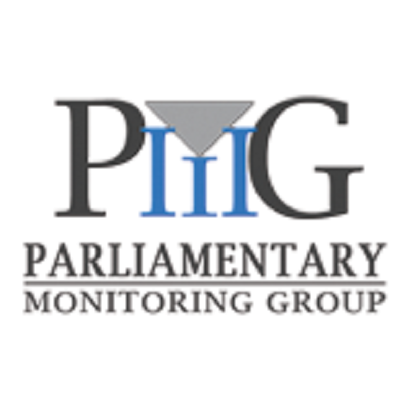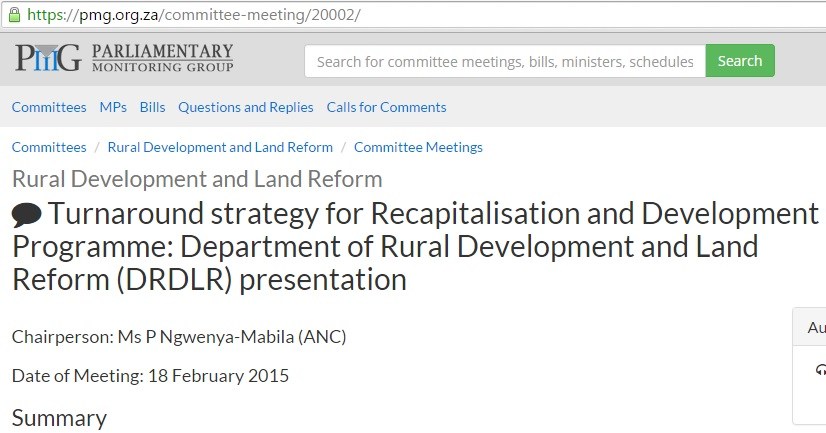Location
What is the Parliamentary Monitoring Group?
The Parliamentary Monitoring Group, an information service, was established in 1995 as a partnership between Black Sash, Human Rights Committee and Idasa with the aim of providing a type of Hansard for the proceedings of the more than fifty South African Parliamentary Committees for these three advocacy organisations. This was because there is no official record publicly available of the committee proceedings - the engine room of Parliament - and this type of information is needed by social justice organisations to lobby the Parliament of South Africa on pieces of legislation, matters of democratic processes and parliamentary oversight of the executive.
This website was set up at the beginning of 1998 to make the information generated available to a wider audience. Presently this is the only source for this type of information. We hope that the PMG committee reports and other documents will provide the public with an insight into the Parliament of South Africa and its daily activity. Importantly it provides a window into the performance of each government department and public entity over which each parliamentary committee has oversight.
PMG became a fully fledged independent NGO in July 2009.
Members:
Resources
Displaying 46 - 50 of 75Department of Rural Development & Land Reform: 3rd quarter 2014/15 performance & progress report on its DPME MPAT evaluation
The Department of Rural Development and Land Reform (DRDLR) briefed the Committee on its third quarter 2014/15 performance and progress on the recommendations made by the Department of Performance Monitoring and Evaluation (DPME) and the Management Performance Assessment Tool (MPAT) evaluation.
Recapitalisation and Development Programme public hearings: Committee’s draft report
The draft report on the public hearings on the Implementation of the Recapitalization and Development Programme (RDP) of the Department of Rural Development and Land Reform (the Department) was presented before the Committee for approval and comments. The main issues that arose in the approval of the draft report were the oversight role of the Committee, sustainability and implementation.
Turnaround strategy for Recapitalisation and Development Programme: Department of Rural Development and Land Reform (DRDLR) presentation
The turnaround strategy for the Recapitalisation and Development Programme (RADP) was presented against the backdrop of the Committee’s public hearings on 4 and 5 February 2015 on the implementation of the programme. The evaluation process conducted by the Department of Performance Monitoring and Evaluation (DPME) indicated that even though RADP had made some progress towards achieving its intended objectives, there was room for significant improvement.
Recapitalisation and Development Programme implementation: Public hearings day 2
The Committee received submissions from the Langa Livestock Farmers Association, The Congress of South African Trade Unions and its affiliate, the National Education, Health and Allied Workers Union, the Legal Resources Centre and the Institute for Poverty, Land and Agrarian Studies on the second day of public hearings on the Recapitalisation and Development Programme (RADP).
Recapitalisation and Development Programme implementation: Public hearings
The Chairperson introduced the first day of public hearings on the Recapitalisation and Development Programme (RADP) in the agricultural sector by noting that the Committee had done oversight in the Northern Cape of the farms that were beneficiaries of the programme, and now wanted to hear the outcomes of the independent evaluation of the programme, and also hear from beneficiaries.



